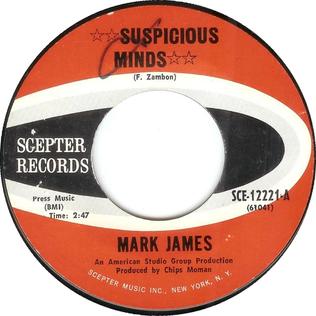
The mind is the set of thinking faculties including cognitive aspects such as consciousness, imagination, perception, thinking, judgement, language and memory, as well as noncognitive aspects such as emotion. Under the scientific physicalist interpretation, the mind is housed at least in part in the brain. The primary competitors to the physicalist interpretations of the mind are idealism, substance dualism, and types of property dualism, and by some lights eliminative materialism and anomalous monism. There is a lengthy tradition in philosophy, religion, psychology, and cognitive science about what constitutes a mind and what are its distinguishing properties.
The problem of other minds is a philosophical problem traditionally stated as the following epistemological challenge raised by the skeptic: Given that I can only observe the behavior of others, how can I know that others have minds? It is a central issue of the philosophical idea known as solipsism: the notion that for any person only one's own mind is known to exist. Solipsism maintains that no matter how sophisticated someone's behavior is, behavior on its own does not guarantee the presence of mentality.

Thought encompasses an "aim-oriented flow of ideas and associations that can lead to a reality-oriented conclusion". Although thinking is an activity of an existential value for humans, there is still no consensus as to how it is adequately defined or understood.
Solipsism is the philosophical idea that only one's mind is sure to exist. As an epistemological position, solipsism holds that knowledge of anything outside one's own mind is unsure; the external world and other minds cannot be known and might not exist outside the mind.

Simple Minds are a British rock band formed in Glasgow in 1977. Simple Minds have released a string of hit singles, becoming best known internationally for their 1985 hit "Don't You ", from the soundtrack of the film The Breakfast Club. Their other prominent hit singles include "Alive and Kicking" and "Belfast Child". They have achieved five UK Albums chart number one albums and have sold more than 60 million albums. They were the most commercially successful Scottish band of the 1980s. Despite various personnel changes, they continue to record and tour. In 2016, they received the Ivor Novello Award for Outstanding Song Collection from the British Academy of Songwriters, Composers, and Authors.

Mind–body dualism is the view in the philosophy of mind that mental phenomena are non-physical, or that the mind and body are distinct and separable. Thus, it encompasses a set of views about the relationship between mind and matter, and between subject and object, and is contrasted with other positions, such as physicalism and enactivism, in the mind–body problem.

Never Mind the Buzzcocks is a British comedy panel game, themed on pop music, that aired between 1996 and 2015. It first starred Phill Jupitus and Sean Hughes as team captains, with Hughes being replaced by Bill Bailey from the eleventh series, and Bailey replaced by Noel Fielding from series 21 onward. The show was produced by Talkback for the BBC, and usually aired on BBC Two. The title plays on the names of punk rock band Sex Pistols' Never Mind the Bollocks album, and the punk band Buzzcocks. The series was first hosted by Mark Lamarr, then by Simon Amstell, and later by a number of guest presenters, with Rhod Gilbert hosting the final series.

"Making Your Mind Up" is a song by the British pop group Bucks Fizz. It was the winner of the 1981 Eurovision Song Contest and was composed by Andy Hill and John Danter. Released in March 1981, it was Bucks Fizz's debut single, the group having been formed just two months earlier. Following its win in the contest, the song reached No.1 in the UK and several other countries, eventually selling in excess of four million copies. It launched the career of the group, who went on to become one of the biggest selling acts of the 1980s and featured on their debut, self-titled album.

The Easybeats were an Australian rock band that formed in Sydney in late 1964. Considered one of the most important rock acts in Australia during the 1960s, they enjoyed a level of success that in their country rivaled the Beatles and became the first Australian rock act to score an international hit with the 1966 single "Friday on My Mind", as well as one of the few in Australia to exclusively write and record original material.

Balamory is a British educational live-action children's programme on BBC One, BBC Two and CBeebies for pre-school children, about a fictional small island community off the west coast of Scotland, named Balamory. Four series were produced between 2002 and 2005 by BBC Scotland, with 254 episodes made. The programme was created by Brian Jameson.

Odyssey of the Mind, abbreviated OM or OotM, is a creative problem-solving program involving students from kindergarten through college. Team members work together at length to solve a predefined long-term problem and present their solution to the problem at a competition. They must also participate in the spontaneous portion of the competition by generating solutions to a problem they have not seen before. While the long-term problem solution often takes many months to complete and involves various elements of theatrical performance, construction and design, the spontaneous portion occurs on the day of the competition.

Time Out of Mind is the 30th studio album by the American musician Bob Dylan, released on September 30, 1997, by Columbia Records. It was his first double studio album since Self Portrait in 1970. It was also released as a single CD.

"Suspicious Minds" is a 1968 song written and first recorded by American songwriter Mark James. After this recording failed commercially, it was cut by Elvis Presley with producer Chips Moman, becoming a No.1 song in 1969, and one of the most notable hits of Presley's career.
"Always on My Mind" is a love song written by Wayne Carson, Johnny Christopher, and Mark James, first recorded by B.J. Thomas in 1970, and first released by Gwen McCrae in 1972. Brenda Lee also released a version in 1972. The song has been a crossover hit, charting in both the country and western and pop categories.

Mind of Mencia is an American comedy television series on the cable channel Comedy Central. Hosted by comedian Carlos Mencia, it aired from July 6, 2005 to July 23, 2008.
In ontology and the philosophy of mind, a non-physical entity is a spirit or being that exists outside physical reality. Their existence divides the philosophical school of physicalism from the schools of idealism and dualism; with the latter schools holding that they can exist and the former holding that they cannot. If one posits that non-physical entities can exist, there exist further debates as to their inherent natures and their position relative to physical entities.

Philosophy of mind is a branch of philosophy that studies the ontology and nature of the mind and its relationship with the body. The mind–body problem is a paradigmatic issue in philosophy of mind, although a number of other issues are addressed, such as the hard problem of consciousness and the nature of particular mental states. Aspects of the mind that are studied include mental events, mental functions, mental properties, consciousness, the ontology of the mind, the nature of thought, and the relationship of the mind to the body.

The mind–body problem is a debate concerning the relationship between thought and consciousness in the human mind, and the brain as part of the physical body. It is distinct from the question of how mind and body function chemically and physiologically, as that question presupposes an interactionist account of mind–body relations. This question arises when mind and body are considered as distinct, based on the premise that the mind and the body are fundamentally different in nature.
The United Kingdom chose their entry for the Eurovision Song Contest 2008 on the BBC programme Eurovision: Your Decision. It replaced the former selection programme, Making Your Mind Up after a string of bad results. It was broadcast on BBC One on Saturday 1 March 2008.











